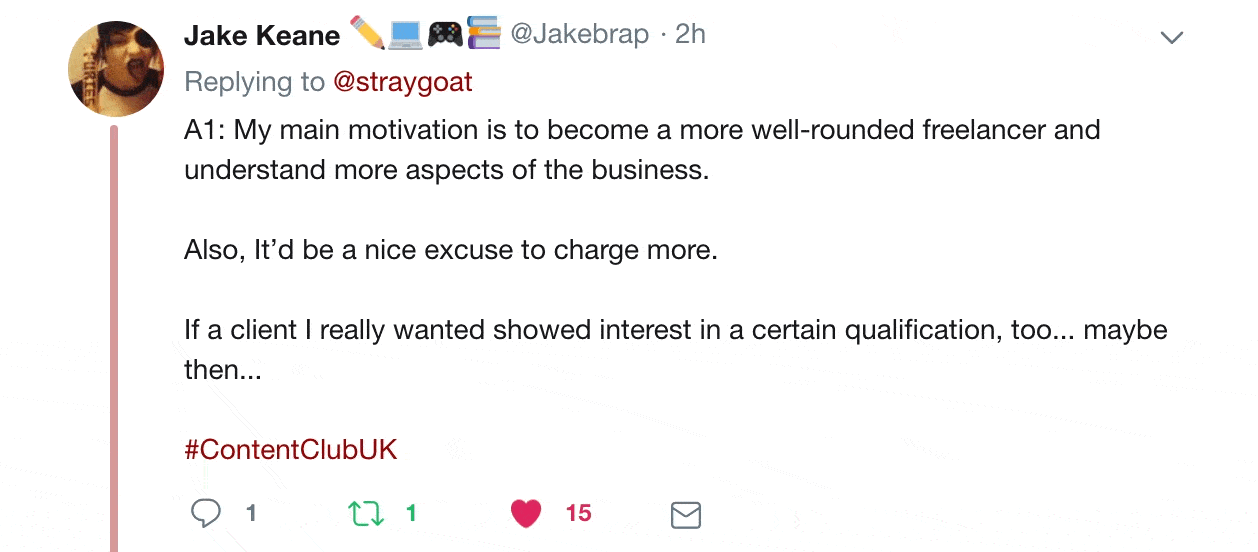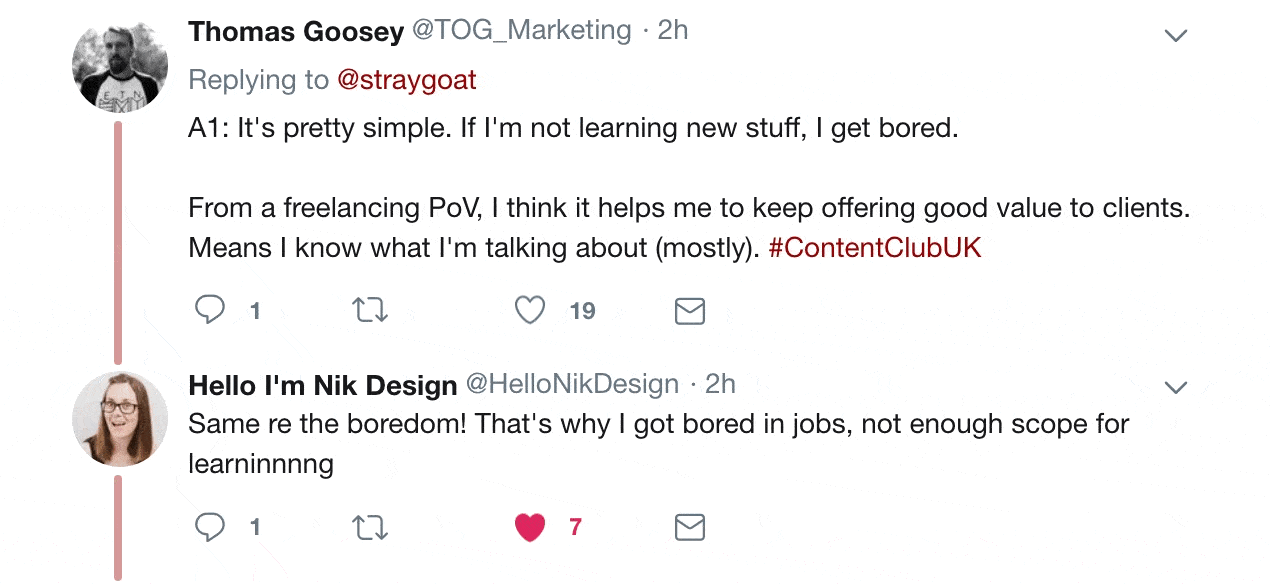This week, I hosted #ContentClubUK for the first time, and this post is a summary of what went down. If you're unfamiliar with ContentClubUK, it is a weekly twitter chat (11.00 AM GMT, follow #ContentClubUK). There are usually 3 questions and a bonus question and we talk about all things content-related. It's for anyone who is involved in content, including writers, marketing folk, and designers.
For my questions, I focused on training and continuing personal development (CPD).
Q1. What motivates you to learn?
Q2. How important is training to you and your clients?
Q3. How do you schedule your training?
Bonus 1. Are there any courses you recommend?
Bonus 2. Do you only train in your own discipline?
I've included tweets from various members, and tried to cover the main points that were raised. If you are in Content Club UK and I didn't mention your answer, it is because I really fucking hate you. I jest of course, it is purely down to space, nothing personal.
Q1. What motivates you to learn?
To get things started, I wanted to find out what drives people to learn more? Is it purely work-related or do they have an innate curiosity and desire to learn?Here's a selection of the answers:
The first to mention the potential monetary gains was Jake. I like that mercenary attitude. But seriously, the potential return on investment needs to be a consideration for freelancers, as training can be expensive.
Good point by Meg (and many others I don't have space to include). Most of the people I've worked with as writers or designers are always looking for new things to learn. We are an inquisitive bunch. Beware the writer who doesn't ask why or take an interest in other things.

Here comes the shedmaster, turning Content Club into Culture Club with this reference. We should all be striving to improve for all of our lives, and not just in work.
Boredom! One of the greatest motivators of all. This is definitely one of my main reasons for learning new stuff. That and a fear of becoming irrelevant and useless. Nik's point about jobs not providing enough scope for learning resonated with me too. That was one of the reasons I turned freelance.

Boom! Boom! Dave drops two truth bombs in quick succession. He's bang on there - learning new skills and approaches can boost your self-esteem and help you break out of a mental rut. I've experienced that for myself.
Also, training as a cure for imposter syndrome gets a big thumbs up from me. I find that doing a course is a great confidence booster. If I'm going to do something, I like to know I'm doing it the right way.
Q2. How important is training to your and your clients?
With this question, I wanted to find out how people felt about ongoing learning. I also wondered if people felt their qualifications (or lack of) had affected their ability to get work.
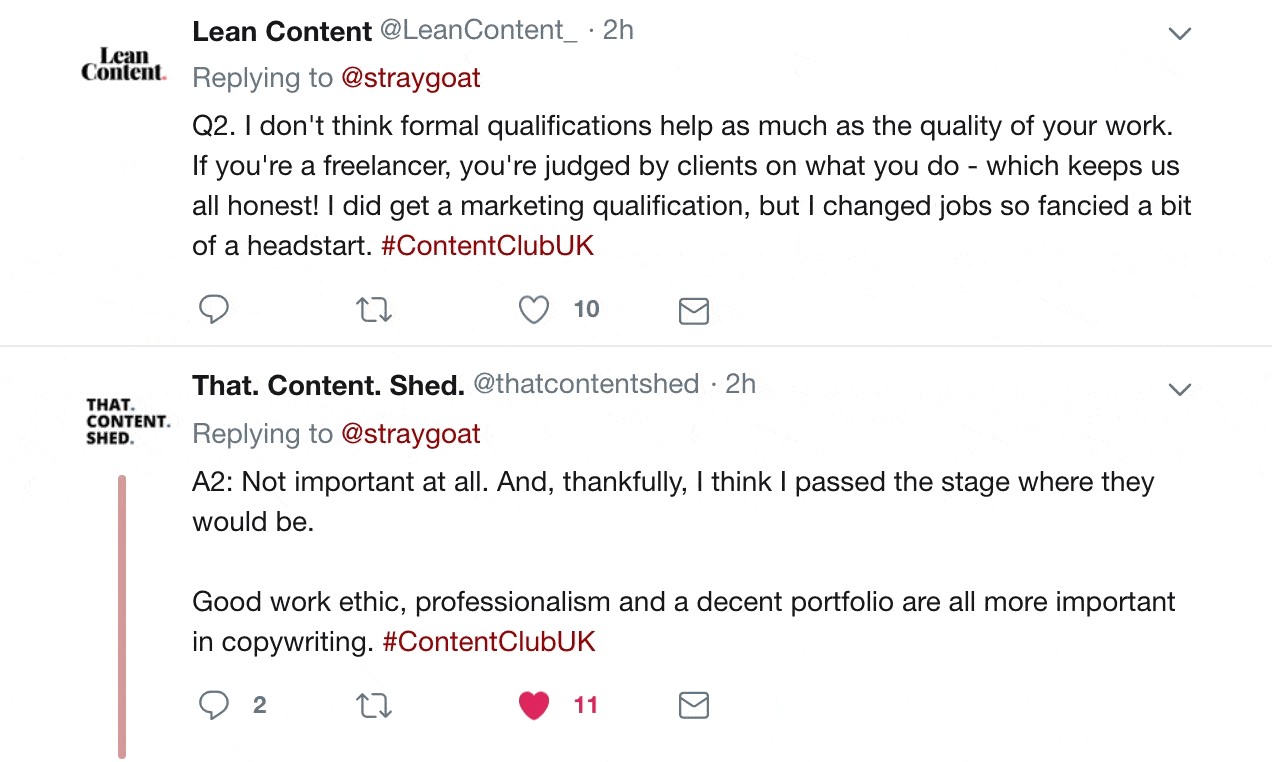
I also asked a similar question in the ContentClubUK Slack and was surprised at how many people don't have relevant qualifications. I agree 100% that its not what qualifications you have, but the quality of your work that matters. But, personally, I'd struggle with self-doubt even more if I didn't have the training as well as the experience.



It's interesting to note that some people said qualifications do matter in certain fields and also certain countries. In my particular niche, having a tech communication degree has definitely helped with credibility, especially when i was younger and had less experience under my belt.
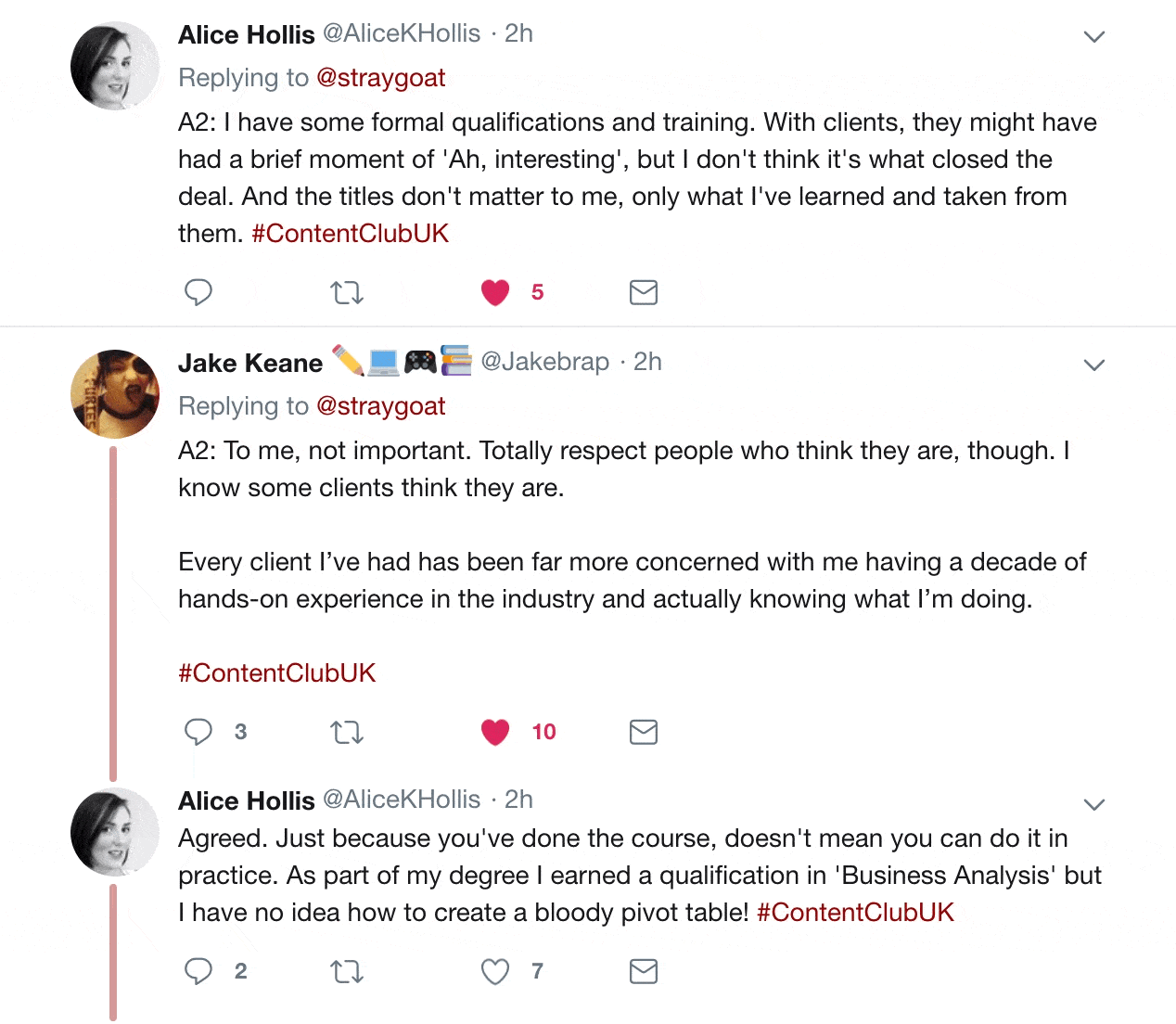
A coulple of important points here. Experience does count for more, no doubt about it. But it has to be good experience. Experience of doing things badly is not that useful is it?
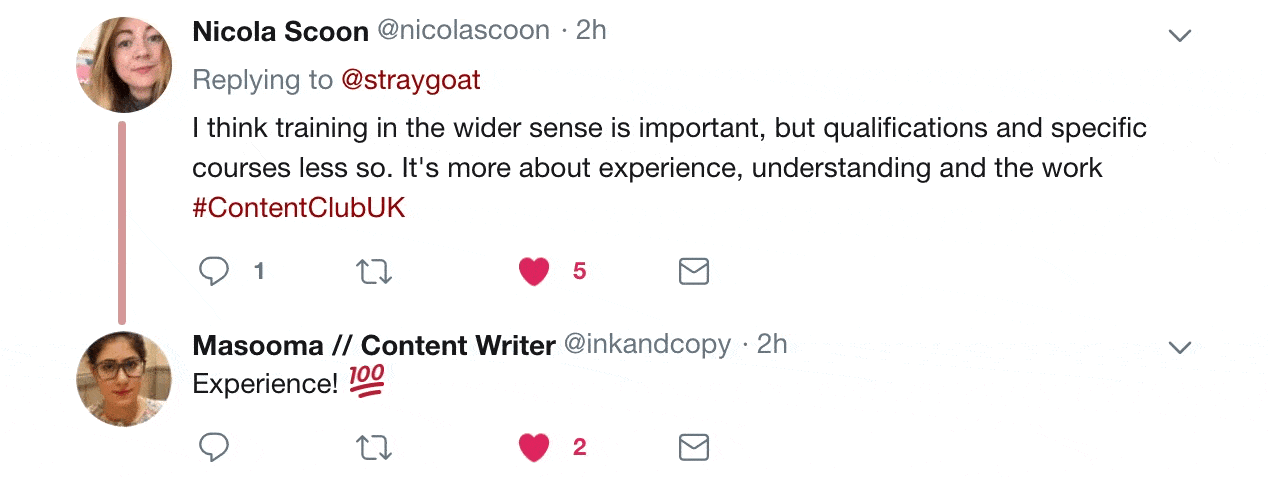
I agree with Nicola. The perfect mix is training, experience, and most importantly, a strong understanding of the work.
Q3. How do you schedule training?
Freelancing often has peaks and troughs. I've found it difficult to book in time for training courses because of being unsure of my workload at any given time. How do other freelancers deal with it?
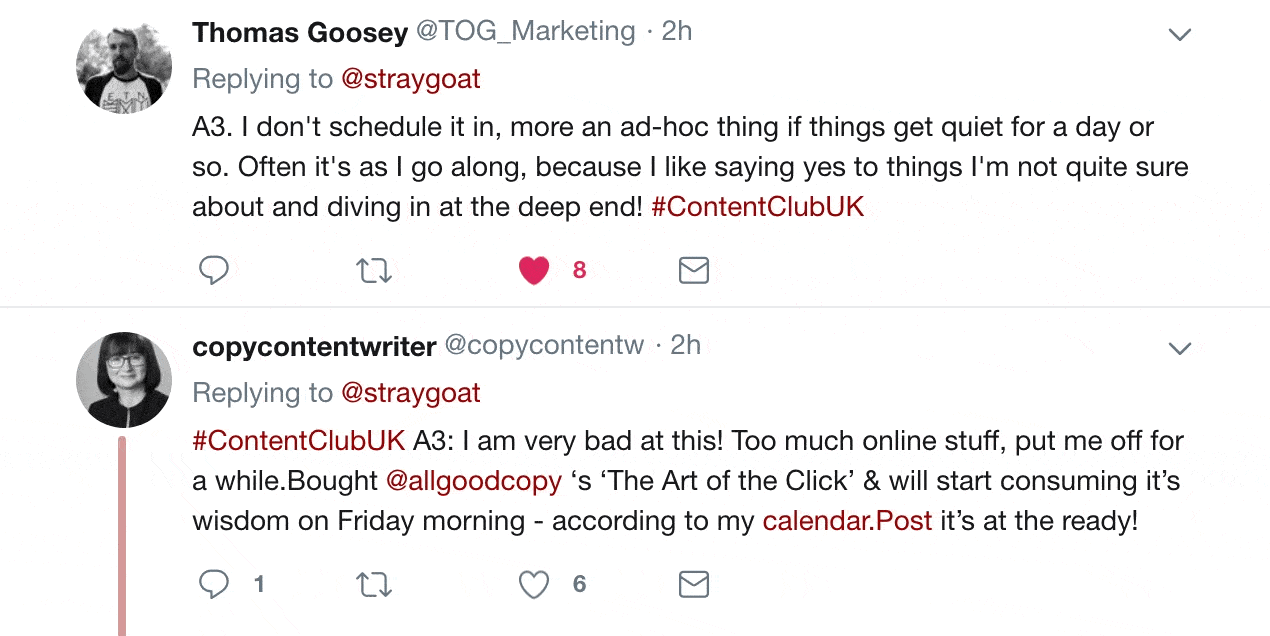
Tom and Claire both take an ad-hoc approach, although it's clearly not working too well in Claire's case. Let's hope that regular Friday morning slot works better for her.
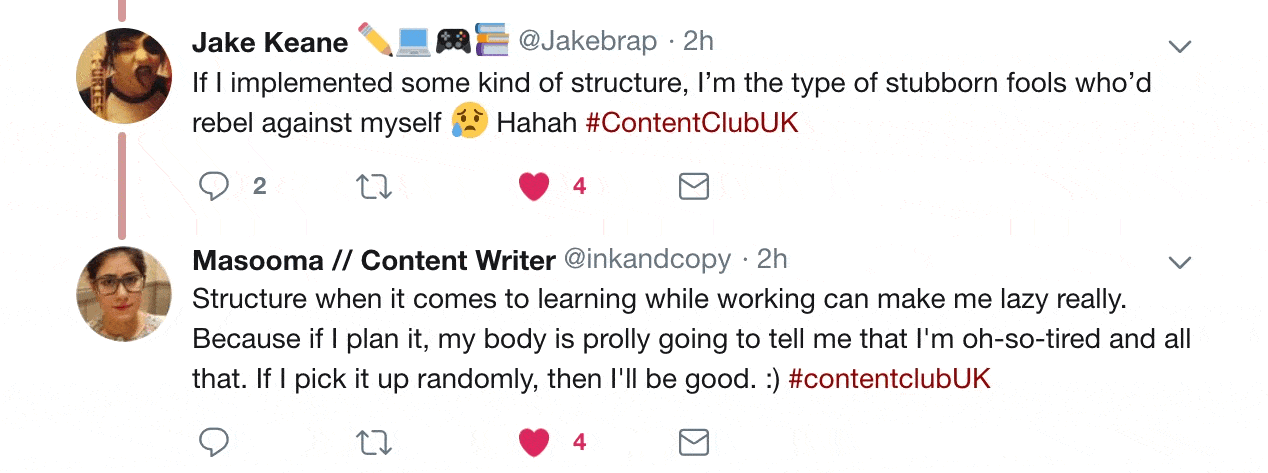
Jake and Masooma turning on themselves there! I can recognise that, and it's important to consider your own traits when considering training. If you know you're not the sort for routine, a schedule isn't going to work for you.



On the flip-side, Andre, Sarah-Louise, and Jas all see the benefit of booking in training time. And Andre, if you're reading, fuck off am I spending ages searching for the accented e at the end of your name :)
For proper training courses, I don't see any way around booking the time like a client job. You can't really do it ad-hoc when you need to book in advance and consider travel arrangements etc., can you?


Finally on this subject, Glenn and Rich mention making learning part of your daily routine and work. Yes, absolutely. This is the CPD part rather than formal training, and I'd argue it is the most important part. Don't spend all day doing the same shit and learning nothing new.
Like Rich, I'm lucky that my job allows me to do CPD while working, no extra effort required.
Bonus #1. Are there any courses you would recommend?
Rather than add all the tweets, I'm just going to give you the links to the courses, books, and podcasts that were mentioned. I'll also add a few of my own at the end.
John Caples, Joseph Sugarman, Scientific Advertising (books)
Bonus #2. Do you only train in your own discipline or do you explore new things too?
As a technical writer, I've seen my own profession break off in different directions over the years. We've now got dedicated UX writers, API technical authors, and many other forms of technical communicator. I'm sure it's the same in other professions, but do people stick to their niche-in-a-niche or do they branch out and learn more?
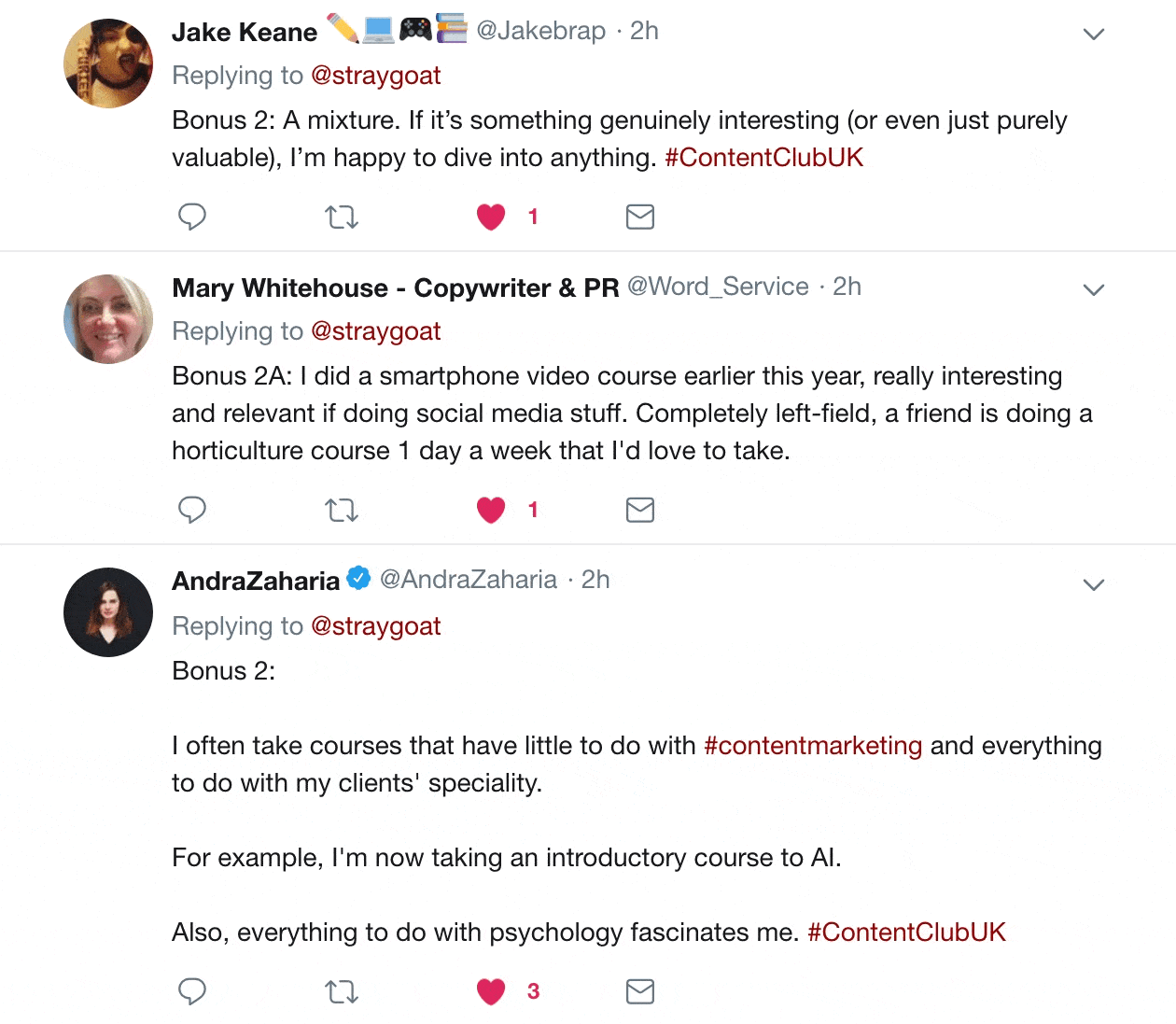





Well there we have it. It looks like everyone is in favour of learning different disciplines and things not even related to our roles. I couldn't agree more with the points made here. All learning is valuable and you never know how you'll be able to relate one thing to another.
What's the point in a life where you're not learning new things?
Over to you
What do you think about training and CPD? Do you agree with the #ContentClubUK folks or do you have a different outlook? By all means share your thoughts - I love it when people shake things up :)
If you're interested in ContentClubUK, it's open to all. If you're involved in content in some way, from writers to artists, come and join in. Follow the #ContentClubUK hashtag on Twitter and remember, it is 11am GMT every Tuesday.


